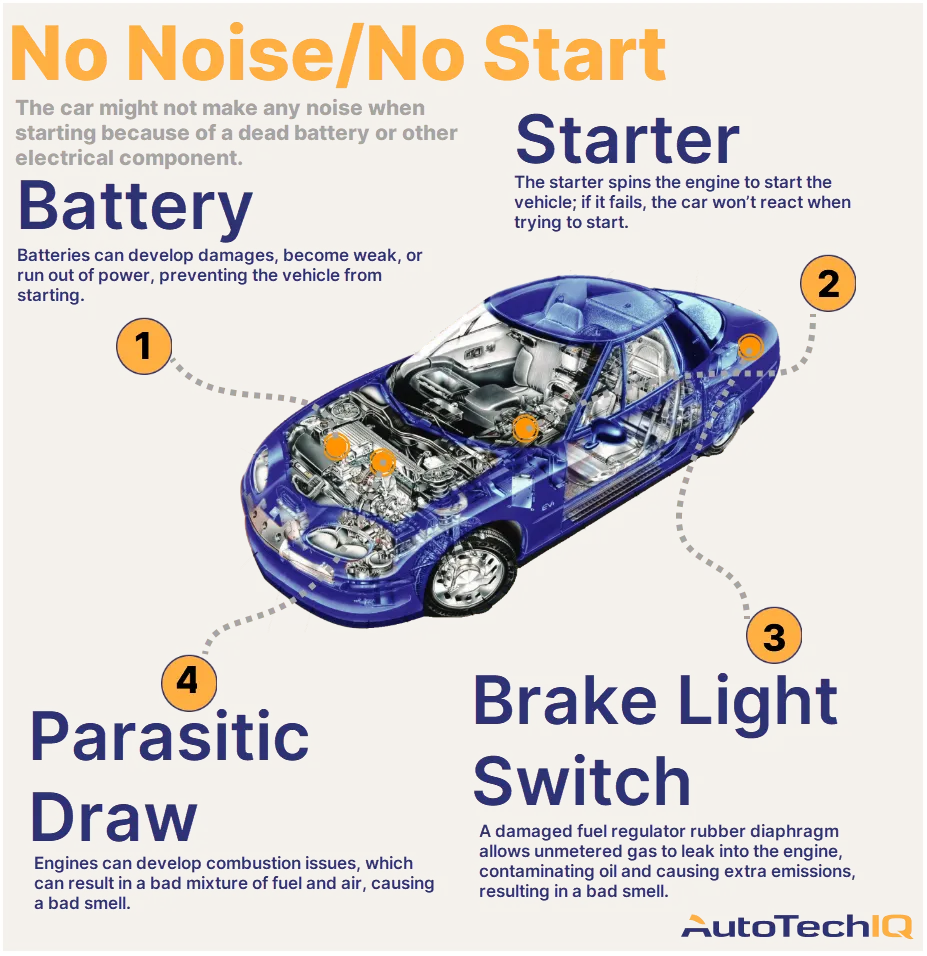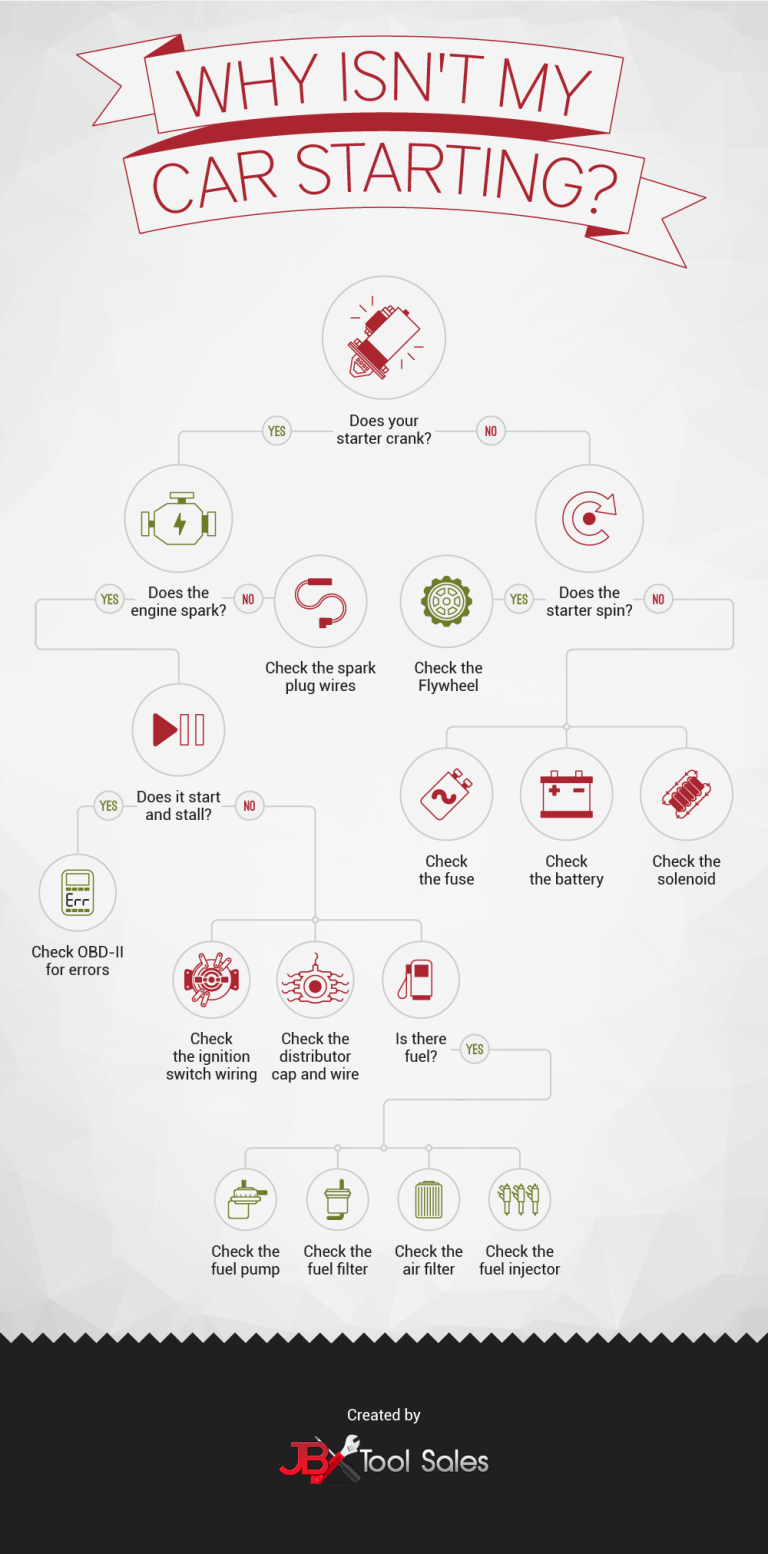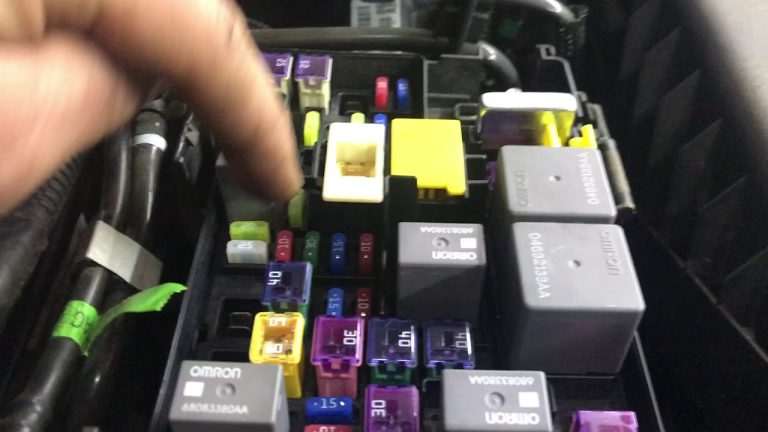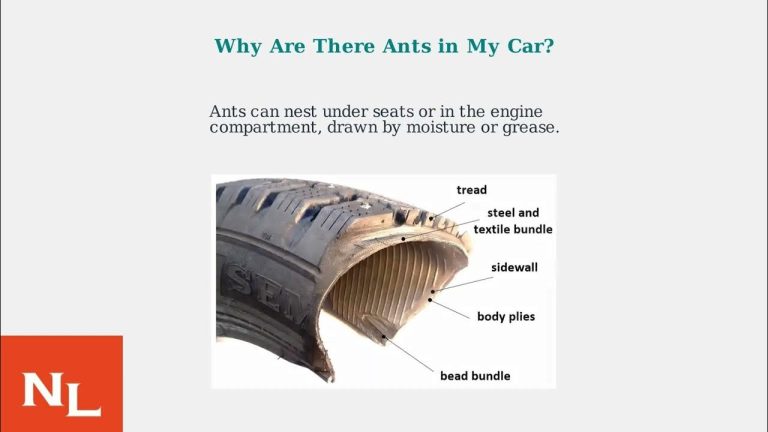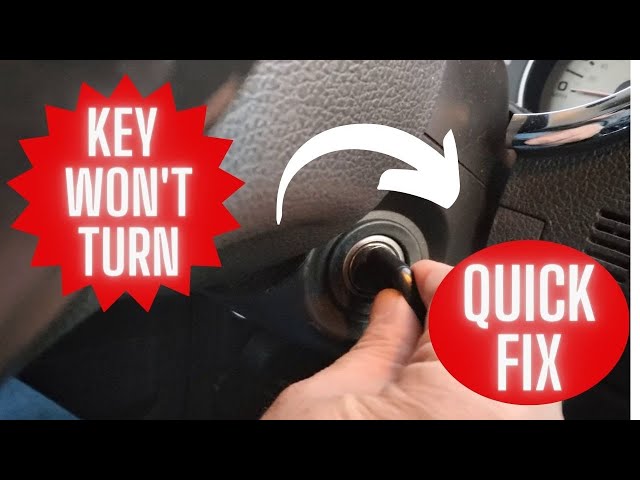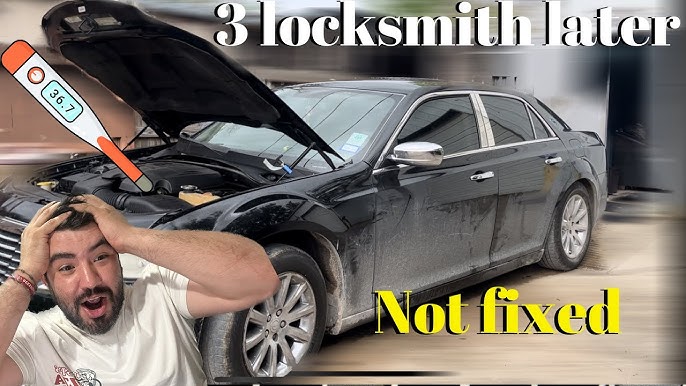Car Won’t Start No Noise: Unravel Silent Engine Mysteries
Picture this: you’re ready to hit the road, but your car won’t start and there’s no noise at all. Frustrating, right?
You turn the key, expecting the familiar sound of the engine, but instead, you’re greeted with silence. It’s a moment that can leave you feeling helpless and wondering what’s wrong. We’ll delve into the possible reasons behind this mysterious silence and guide you through simple steps to diagnose and potentially solve the problem.
No more guessing games—let’s get to the bottom of why your car won’t start without a sound. Stay with us to turn your car troubles into an opportunity to learn and regain control.

Credit: www.wikihow.com
Car Won’t Start No Noise
Common Causes Of Silence
Discovering your car won’t start can be frustrating. Silence is even more confusing. Understanding common causes helps solve the mystery. Learn the key reasons behind this quiet problem.
A dead battery is often the main culprit. It loses charge over time. Sometimes, connections are loose or corroded. This prevents power flow. Regular checks help maintain battery health. Clean terminals to ensure proper contact.
The ignition switch initiates the starting process. Faulty switches cause silence. A broken switch disrupts power to the starter motor. Symptoms include no dashboard lights. Replace a malfunctioning switch promptly.
The starter motor turns the engine. A failed motor means no sound. Usually, a worn-out motor is responsible. Other times, electrical issues affect performance. Regular maintenance can prevent motor failure.
Read more: Toyota Camry Won’t Start But Has Power: Troubleshooting Tips
Fuse And Relay Issues
Fuses protect electrical components. A blown fuse stops power flow. Relays manage high-current circuits. A faulty relay can cause silence. Check fuses and relays if your car won’t start. Replace damaged ones to restore function.
Security System Interference
Modern cars have security systems. These systems prevent unauthorized starting. Sometimes, they malfunction and block starting. Check your key fob or security settings. Resetting may solve interference problems.

Credit: www.youtube.com
Battery Issues
Car troubles can be frustrating, especially when it won’t start. The silence when you turn the key can be unsettling. Often, the issue lies with the battery. Understanding battery issues can save time and stress. Let’s explore common battery problems.
Battery Drain
Batteries can drain for several reasons. Leaving lights on is a common cause. Faulty wiring can also drain the battery. Regularly check your car for these issues. This helps prevent unexpected battery failure.
Corroded Battery Terminals
Corrosion can hinder battery performance. It appears as a white, powdery substance. Corroded terminals disrupt the electrical connection. Cleaning terminals with baking soda and water can help. Always wear gloves for safety.
Dead Battery
A dead battery won’t start the car. Testing the battery is essential. Use a multimeter to check voltage levels. A reading below 12.4 volts indicates a weak battery. Recharging or replacing might be necessary.
Old Battery
Batteries have a limited lifespan. Most last around three to five years. An old battery can cause starting issues. Check the manufacture date on the battery. Replace it if it’s too old to ensure reliability.
Loose Battery Connections
Loose connections can prevent the car from starting. Ensure cables are tight and secure. Wiggle the battery cables to check for looseness. Secure any loose connections immediately.
Starter Motor Failure
Car won’t start and there’s no noise? A failing starter motor might be the culprit. This component often causes the car to stay silent instead of starting, leaving drivers puzzled. Regular checks can prevent unexpected breakdowns and ensure smooth operation.
When your car refuses to start and there is no noise, it can be both frustrating and perplexing. One common culprit behind this silent treatment is a failing starter motor. Understanding how a starter motor works and why it might fail can save you time and stress.
What Is A Starter Motor?
The starter motor is a small but powerful electric motor responsible for cranking the engine to life. It draws power from the car’s battery to turn the engine over. If your car doesn’t respond when you turn the key, the starter motor could be the issue.
Signs Of Starter Motor Failure
A silent car is the most obvious sign, but there are others. Do you notice a clicking sound when you turn the key? This could mean the starter is trying to engage but can’t. Sometimes, the dashboard lights dim when you attempt to start the car, indicating power is being drawn but not utilized correctly.
Causes Of Starter Motor Failure
Several factors can lead to a starter motor failure. Wear and tear over time is common, especially in older vehicles. Wiring issues or a faulty solenoid can also be culprits. Have you checked for corrosion? Rust or grime on electrical connections can hinder the starter’s performance.
How To Diagnose Starter Motor Problems
Start with a visual inspection. Look for loose connections or corrosion. Use a multimeter to check the battery’s charge. Is it fully charged? If yes, the problem likely lies with the starter or its connections. Consult a professional if you’re unsure.
Starter Motor Replacement: Diy Or Professional?
Replacing a starter motor can be a straightforward task if you have the right tools and knowledge. Consider your comfort level with car repairs. Are you confident working under your car? If not, it might be wise to seek professional help to avoid further damage.
Preventing Future Starter Motor Issues
Regular maintenance is key. Keep electrical connections clean and check for signs of wear. Address any strange noises or difficulties starting your car promptly. A little attention now can prevent bigger problems down the road.
Have you ever experienced a starter motor failure? It can be a learning opportunity for car maintenance. Share your experiences and tips in the comments below!

Credit: www.youtube.com
Ignition Switch Problems
Car problems can be frustrating, especially when your car won’t start. Silence from the engine often signals ignition switch problems. This small device plays a big role. It sends power to the starter and other electrical parts. If it’s faulty, your car stays silent. Understanding ignition switch issues helps in solving them.
Read more: Subaru Won’t Start: Troubleshooting Tips & Solutions
Identifying Ignition Switch Problems
Recognizing ignition switch issues is crucial. A faulty switch can prevent your car from starting. Listen for any clicking sounds. A quiet switch might be broken. Check if your dashboard lights up. No lights could mean switch trouble. This component connects the battery to the starter. Without it, the car remains still.
Symptoms Of A Faulty Ignition Switch
Several signs indicate a bad ignition switch. Your car won’t start, even with a full battery. The engine might not crank. Dashboard lights may flicker or stay dark. Accessories like radio or air conditioning might fail. These are clear signals of ignition switch problems.
Causes Of Ignition Switch Failure
Many factors lead to ignition switch failure. Wear and tear is a common cause. Frequent use wears out internal parts. Dirt and debris can enter the switch. This leads to poor contact. Moisture can corrode internal components, causing failure. These issues affect the switch’s performance.
Solutions For Ignition Switch Problems
Fixing ignition switch problems is possible. Check for loose connections first. Tighten any loose wires or screws. If the switch is dirty, clean it. Use a gentle cleaner to remove debris. Consider replacing the switch if it’s severely damaged. A new switch restores power to your car.
Diagnosing Electrical Faults
Experiencing a car that won’t start with no noise can be frustrating. Understanding the possible electrical faults is essential to solving the issue. Electrical components in cars are complex, and identifying the exact problem can be challenging. This guide aims to simplify diagnosing electrical faults, ensuring your car is back on the road swiftly.
The battery is often the culprit in silent start failures. Check if the battery is dead or corroded. A simple visual inspection can reveal corrosion around the terminals. Clean them using a baking soda and water mixture. Also, ensure the battery connections are tight and secure.
Faulty Starter Motor
The starter motor might be malfunctioning if the car makes no noise. Inspect the starter for physical damage or loose connections. Test the starter with a multimeter to ensure it’s receiving power. If the starter is not functioning, replacement may be necessary.
The ignition switch sends power to the starter motor. A faulty switch can prevent the car from starting. Test the ignition switch using a multimeter. If the switch is defective, it needs replacement to ensure proper power flow.
Blown Fuses
Fuses protect electrical components from overload. A blown fuse can disrupt the starting process. Locate the fuse box and check for any burnt fuses. Replace any damaged fuses to restore electrical functionality.
Wiring Issues
Damaged or loose wiring can lead to starting problems. Inspect the wiring for any signs of wear or disconnection. Ensure all wires are securely connected and intact. Repair or replace any damaged wires to resolve the issue.
Alternator Failure
The alternator charges the battery while the engine runs. A failing alternator can drain the battery, causing silent start failures. Test the alternator’s output using a multimeter. If the alternator is faulty, it requires replacement to maintain battery charge.
Frequently Asked Questions
What Does It Mean When Your Car Won’t Start And Makes No Noise?
A silent car often indicates battery issues or a faulty ignition switch. Check battery connections for corrosion. Inspect fuse box for blown fuses. Examine starter motor for damage. Verify if gear is in “Park” or “Neutral. ” Consider professional diagnosis if problems persist.
Regular maintenance helps prevent future issues.
Why Is There No Sound When I Turn My Key In The Ignition?
The ignition might be silent due to a dead battery, faulty starter, or ignition switch issues. Check battery connections and fuses. If the problem persists, consult a mechanic for a detailed inspection to avoid further complications. Regular maintenance can prevent ignition-related issues.
When I Turn My Key In The Ignition, Nothing Happens.?
Check the battery for charge. Inspect the ignition switch and starter motor for faults. Ensure the key is not damaged. Verify that the vehicle is in ‘Park’ or ‘Neutral’ gear. Consult a mechanic for further diagnosis if the issue persists.
Why Is There No Sound When I Start My Car?
Car Won’t Start No Noise your car may indicate a dead battery, faulty ignition switch, or starter motor issues. Check connections, battery charge, and fuses. Ensure the gear is in ‘Park’ or ‘Neutral’. Consult a mechanic if the problem persists for a thorough diagnosis and repair.
Why Won’t My Car Start Without Any Noise?
A dead battery is the most common cause. Check connections for corrosion. Inspect the battery’s health.
Conclusion
A car won’t start no noise. Silence often means an issue. Check the battery first. Connections may be loose or corroded. Inspect the starter motor too. Sometimes, it’s a simple fix. Don’t forget the ignition switch. It might be faulty.
Regular maintenance prevents surprises. Keep your car in good shape. Listen to its needs. Address small problems early. This saves time and money. Remember, patience is key. Troubleshooting takes time. But it’s worth the effort. Keep learning and stay prepared.
Your car will thank you. Safe travels ahead!

